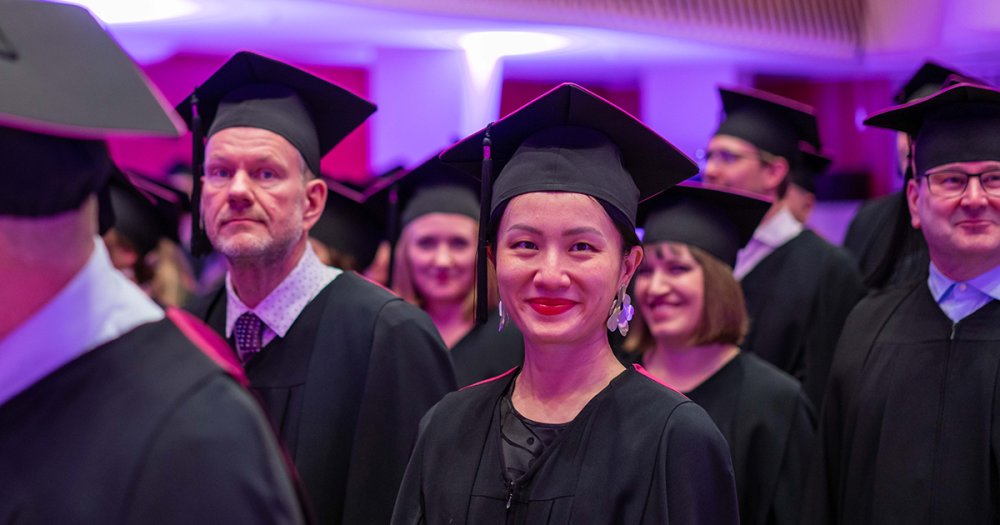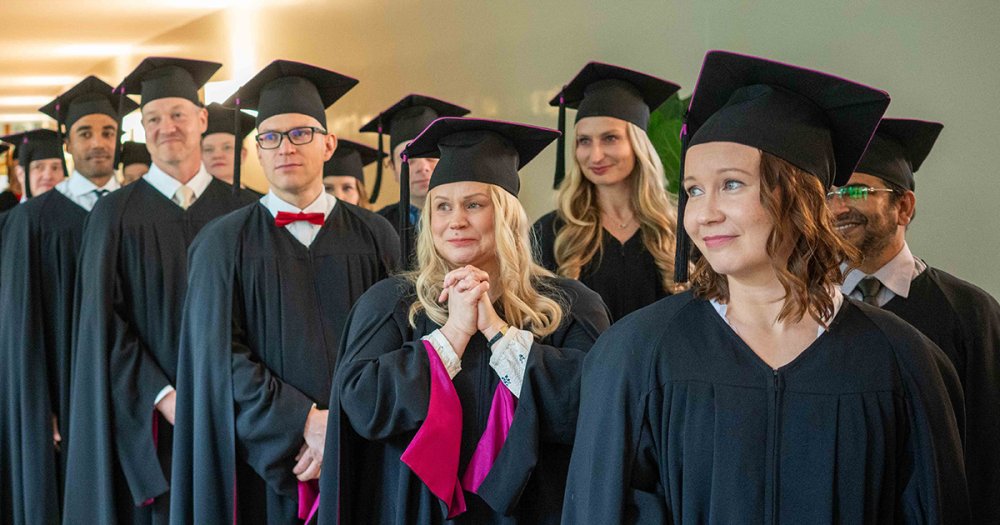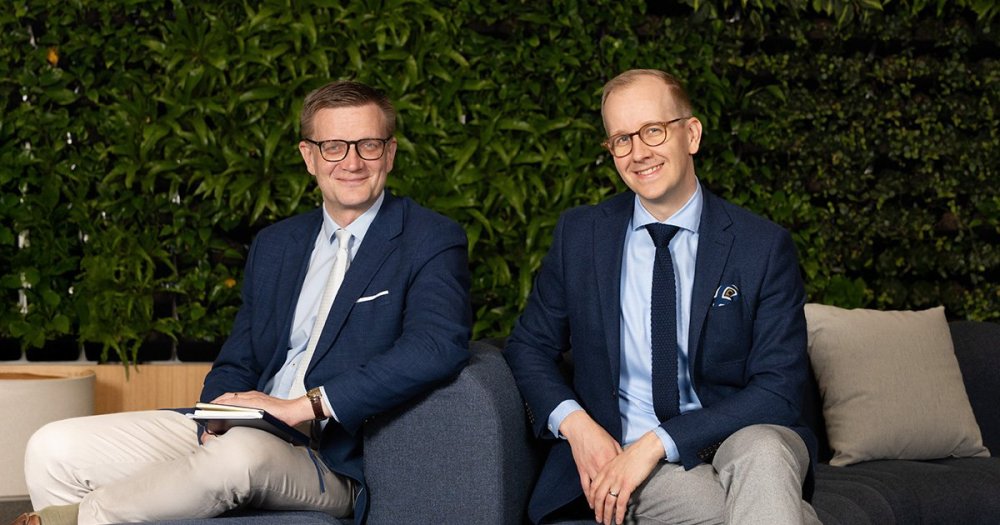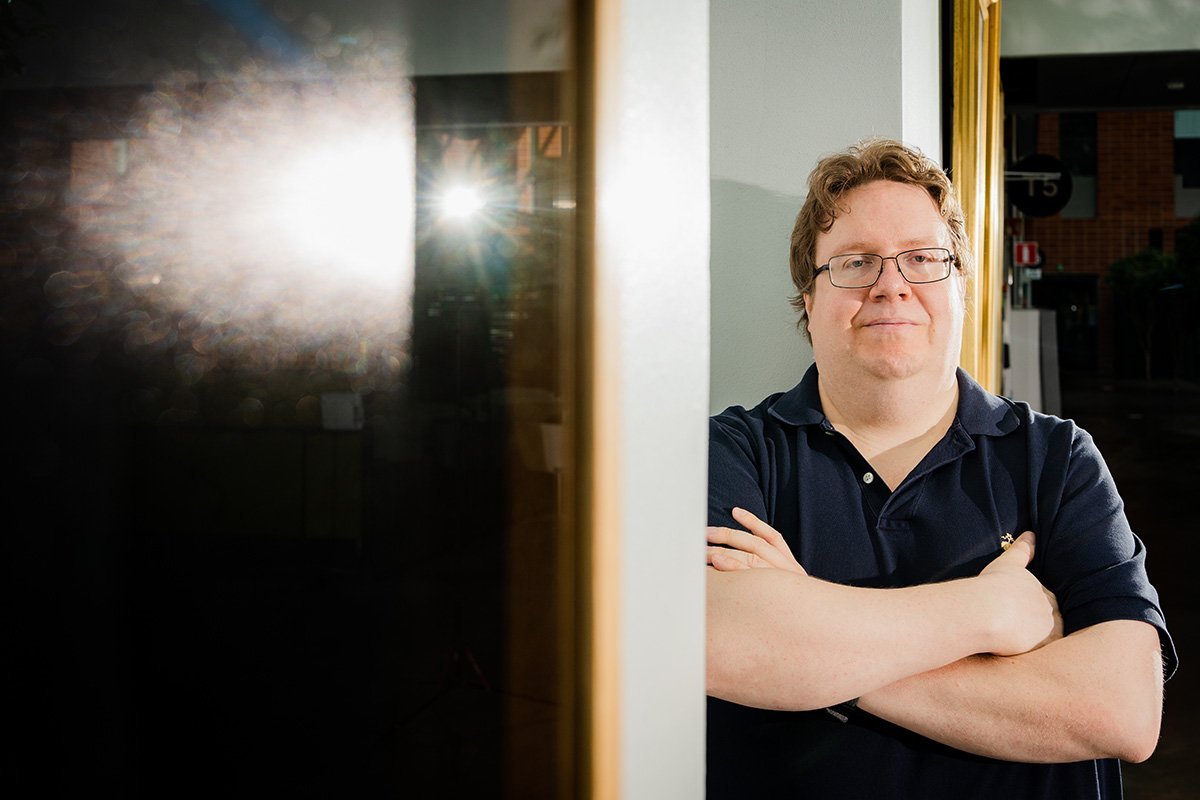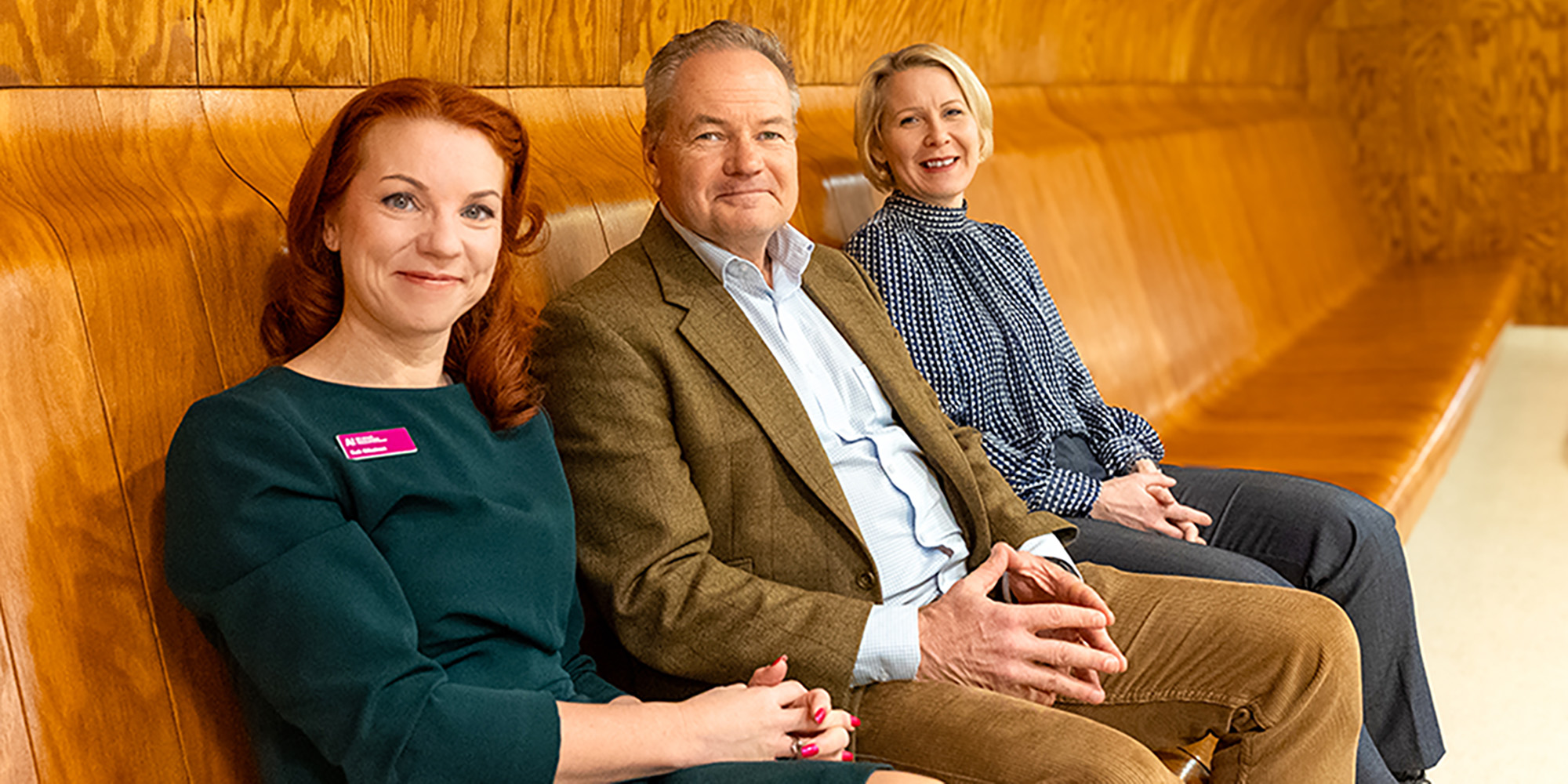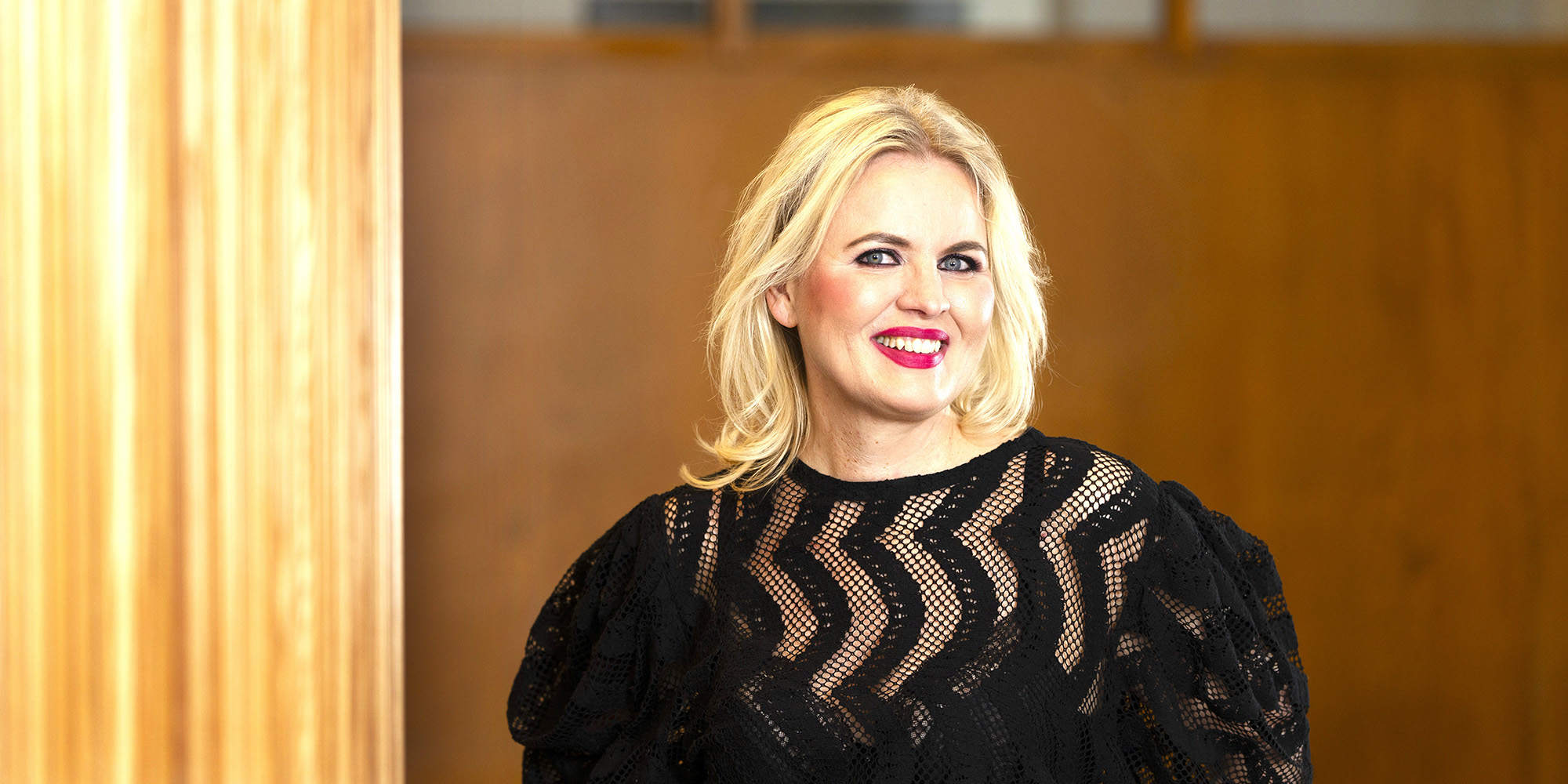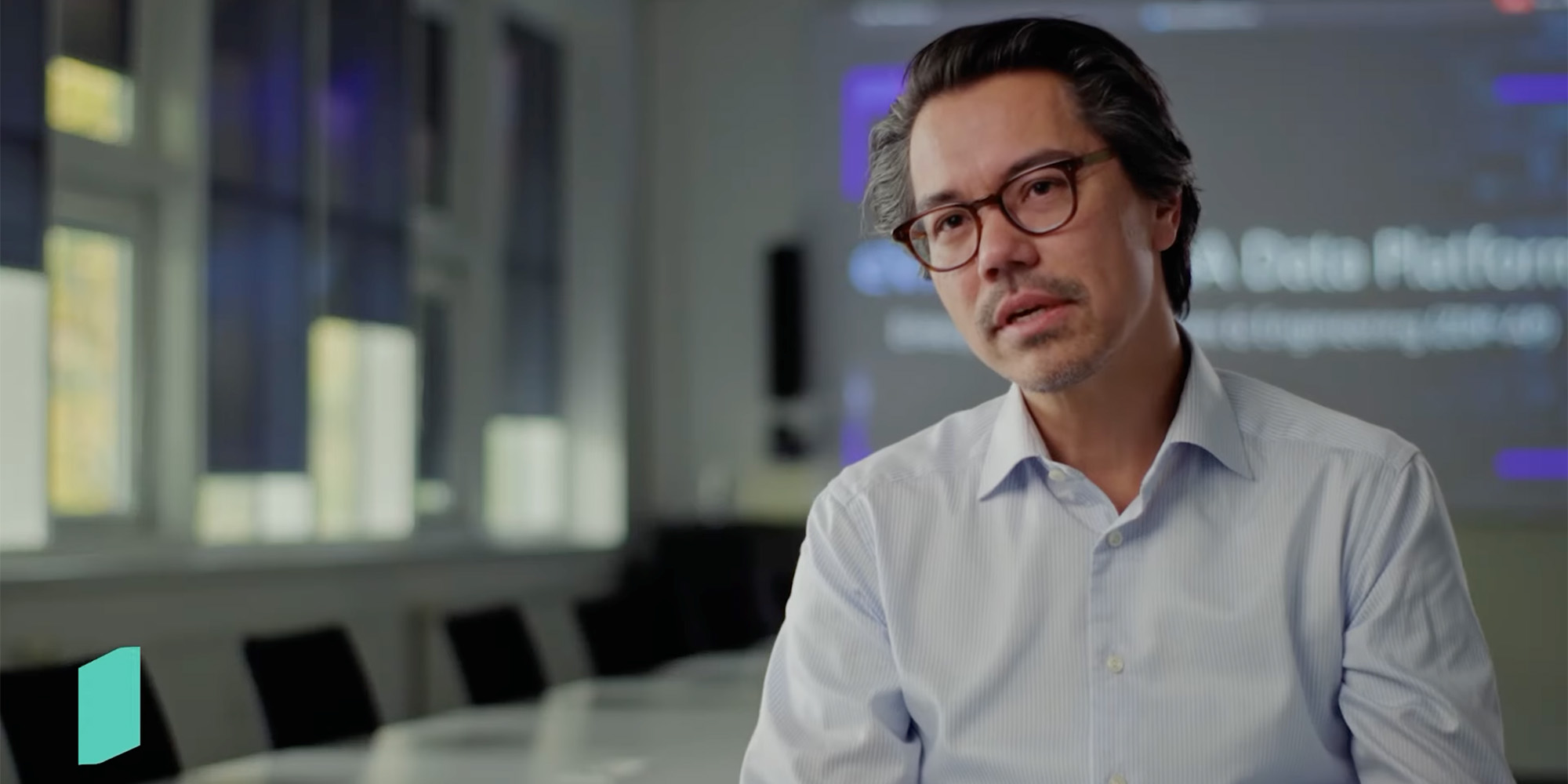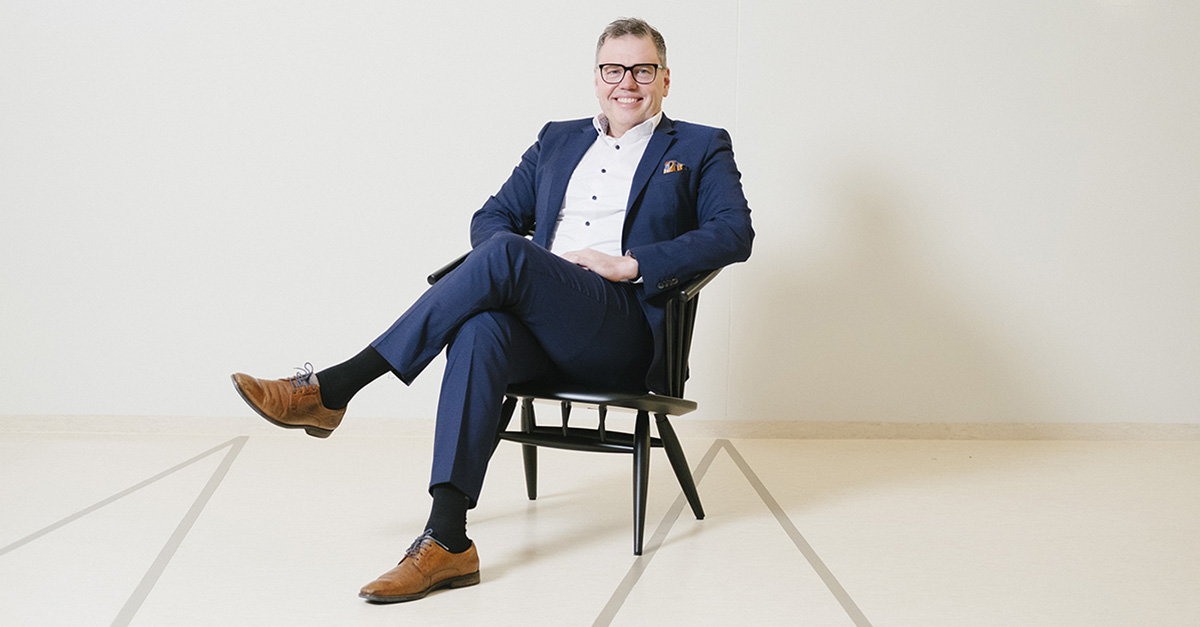After concluding a meeting with his research group at Aalto University in Espoo, Professor Janne Lindqvist explains what questions the members are focusing on in their studies.
”Together with a doctoral student, we got carried away with whether it’s better to take notes using a pen or a laptop. A high-profile study from 2014 found that in some cases, the pen was mightier than the keyboard. Now it turns out it’s not necessarily so simple. What a fascinating topic, we thought. Let’s see where this will lead us, but at least we’ll be learning plenty on the way.”
”A Master’s thesis student and I have interviewed adult gamers on how they negotiate playing with their children. Studies have usually focused on the opposite, examining the parents’ attitudes towards their playing children. We want to find out how parents manage to play when they have small children.”
The list of Lindqvist's current studies goes on. They all have at least two aspects in common: a focus on the interaction between computers and humans, and a practical quality."
”Then there’s a study examining the ecosystem at Apple. What does user-friendliness mean for privacy? What do we give up when we allow a company like Apple to transfer our data from one device to another?”
The list of current studies goes on. They all have at least two aspects in common: a focus on the interaction between computers and humans, and a practical quality – you don’t need to be an expert to understand. Listening to Lindqvist reveals a third common thread: many of the research questions stem from the researchers’ personal, everyday observations.
To give an example, the research question about adult gaming was formulated when the professor himself started to play Assassin’s Creed Odyssey at home.
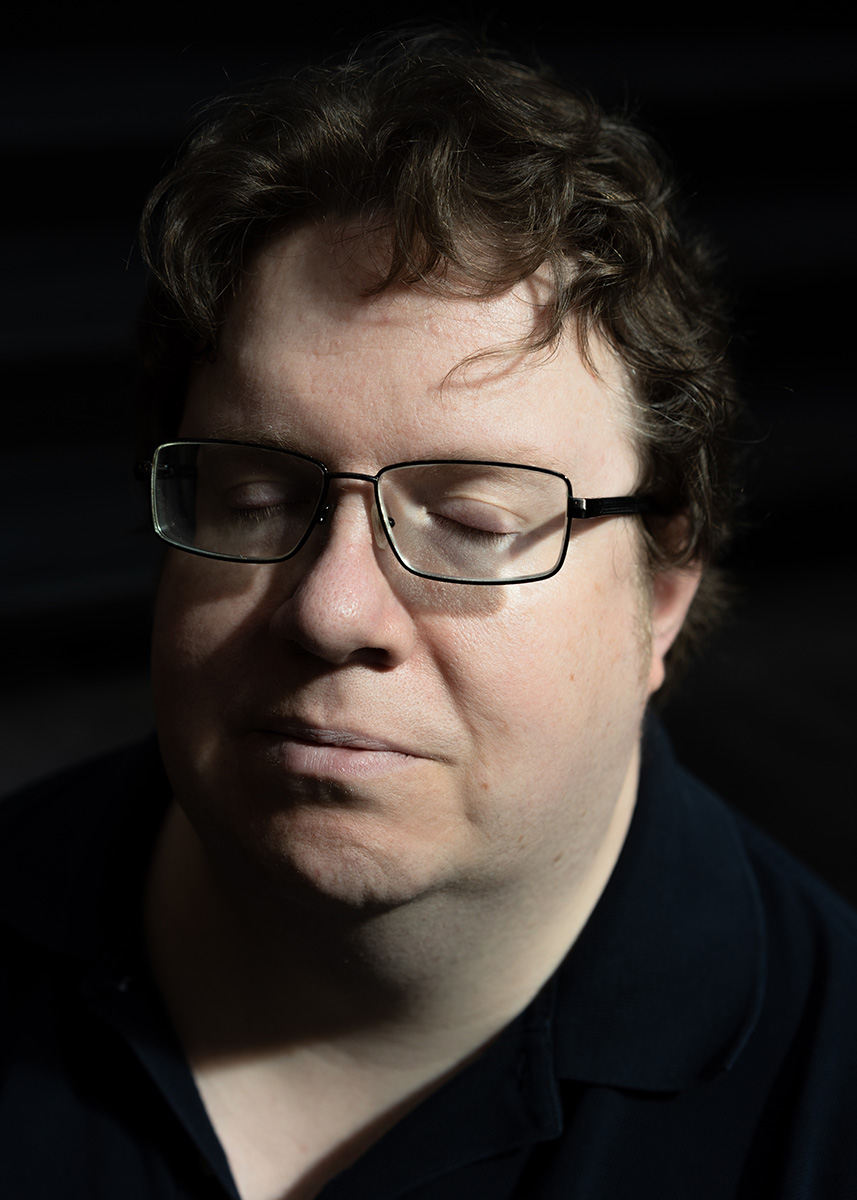 |
| Janne Lindqvist is an Associate Professor of Computer Science and Head of Department at Aalto University, the Director of Helsinki-Aalto Institute for Cybersecurity, and also the professor in charge of the new Engineering Psychology program. Photo: Ville Maali |
The setting of the game is in Ancient Greece, and the player controls a mercenary. But how does the father manage to play at home when the violent game isn’t suitable for the eyes of his two school-aged daughters? The family discussed the issue, set some rules, and realized they could still talk about how well or badly dad was doing in the Peloponnesian Wars, even if the rest of the family wasn’t playing.
Clearly something that needs further examination, the professor thought. And so the research topic came about.
”Most of my studies are rooted in similar real-life issues. They stem from anecdotes or my personal observations: How silly is this? How fun is that? This would be interesting to explore,” Lindqvist clarifies.
This results in multidisciplinary research. The most convincing argument for the necessity of multidisciplinary research must be that the problems, and especially the solutions of humankind, cannot be categorized under a certain discipline.
"Whether you have a degree in engineering or theology, you can end up working in a range of areas."
Janne Lindqvist is an Associate Professor of Computer Science and Head of the Computer Science Department at Aalto University, the Director of Helsinki-Aalto Institute for Cybersecurity (HAIC), and now also the professor in charge of the new Engineering Psychology major at Aalto University.
He returned to Finland a couple of years ago after spending a decade as a research scientist and professor in the United States. Becoming profiled in a specific theme has often been seen as a prerequisite for professors to succeed in the global market. But it’s not the only way.
”I’ve succeeded by doing what I feel like doing any given morning,” Lindqvist highlights.
Lindqvist says he was already interested in ”everything possible” during his student days. At a Finnish university, you can pick studies here and there without extra fees. It could be called drifting and indecisiveness, or a multidisciplinary approach and acquiring a broad education.
People have begun to accept that a clearly defined career path that starts from a degree and leads to a straightforward career offering possible advancement no longer exists."
”Multidisciplinarity has been the word on everyone’s lips for as long as I remember,” explains Lindqvist. In recent years, it has been coupled with the notion of lifewide learning.
“People have begun to accept that a clearly defined career path that starts from a degree and leads to a straightforward career offering possible advancement no longer exists. The current thinking is that whether you have a degree in engineering or theology, you can end up working in a range of areas.”
Lindqvist’s research topics highlight the point, ranging from data protection to video streaming evaluation methods, self-injury, privacy in automotive insurance, and experiences of racism. In the aftermath of Hurricane Sandy, it has also been involved in creating an app for a small town in New Jersey designed to prevent hurricane damage.
His topics are wide-ranging, and his colleagues have included psychologists and sociologists.
A new major addressing the need for multidisciplinarity on an institutional level
Multidisciplinarity has been a hot topic in universities, companies, and politics alike. It is a no-brainer after all: it makes sense that a complex problem is tackled by a multidisciplinary team instead of each focusing on a point solution in their silo.
Yet the majority of scientific and other types of work is still carried out with people in the same field.
Researchers, officials, and business directors all complain about the silo effect. New communication channels and steering groups are established to counter the problem, which everyone finds draining.
But what if activities were multidisciplinary from the onset?
Engineering Psychology is a new BSc major at Aalto University that addresses the need for multidisciplinarity on an institutional level. The studies combine psychology, natural sciences, and technology. Graduates are promised a chance to solve issues like making the design of technological innovation increasingly human-centric and inclusive.
Master’s students could specialize in, for instance, becoming an accessibility expert or developer of e-health services. Engineering Psychology is led by the Department of Computer Science and collaborates with the Department of Signal Processing and Acoustics, Department of Communications and Networking, and Department of Neuroscience and Biomedical Engineering.
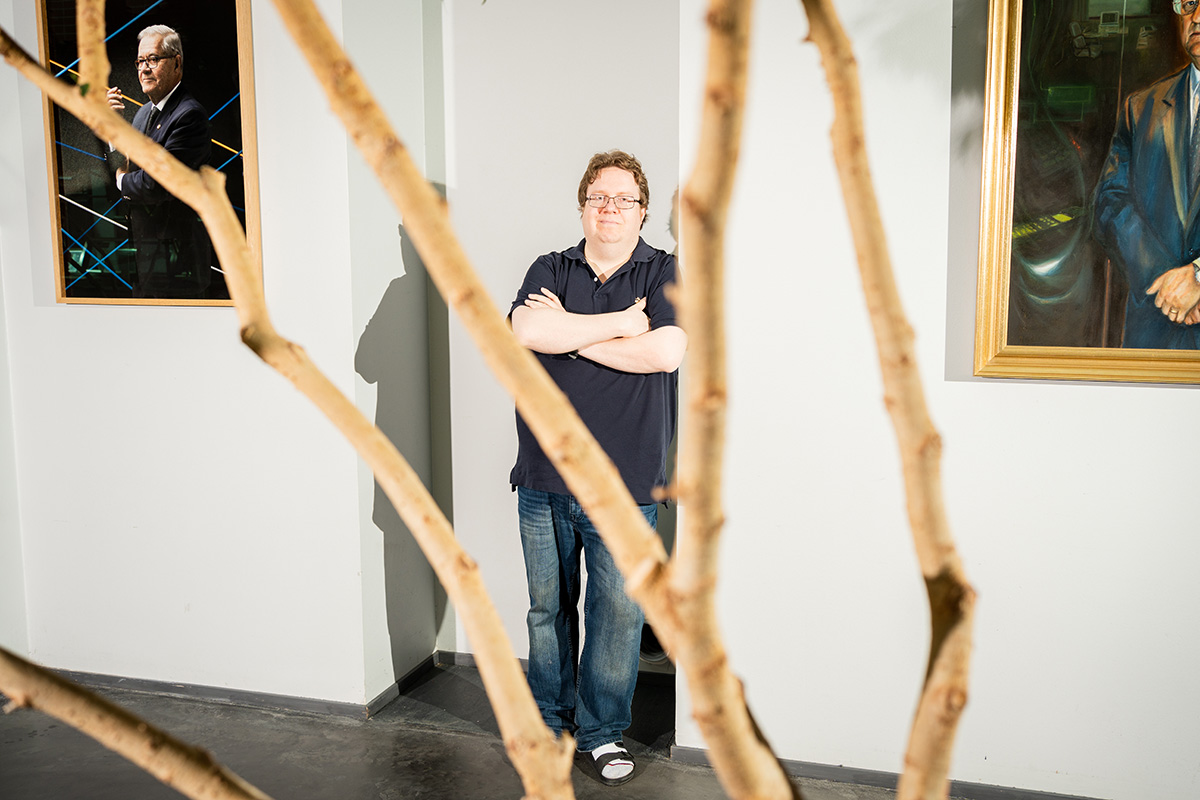 |
| Janne Lindqvist's research topics are wide-ranging, and his colleagues have included psychologists and sociologists. Photo: Ville Maali |
The new major was originally proposed by psychologists at Aalto University, and Janne Lindqvist was immediately excited to get on board when he learned about it. Thinking about how computers are used, Engineering Psychology seems like an obvious combination. It is after all people who use technology, whether it be games, AI, security, medicine, or any other online activity.
Let’s take a practical example: How many password-protected services do you use regularly?
There’s email, Spotify, banking, insurance, Netflix, CMore, AppleID, Instagram, SnapChat, Slack, all those platforms for buying travel tickets, booking a yoga class, sending a message to my child’s teacher, reading newspapers and magazines… Dozens of passwords, a crazy amount.
Here’s another question: Are your passwords secure, or do you at least keep them safe? Do you resort to the “Forgot your password?” link most weeks?
Yes, the issue is both big and small, mundane and technical.
Passwords are an example of something practical that’s linked to at least technology, business, and human behavior.
Developing increasingly equal and human-centric technology
Janne Lindqvist explains that psychology is applied to the development of computer security as research scientists examine replacing passwords with better solutions. Forgotten passwords cost companies millions each year. It is also a question of services being accessible and inclusive. For instance, is online banking natural, safe, or even possible for everyone?
Lindqvist has always been interested in computer security. He first delved into the technological side, learning encryption algorithms and protocols. But he soon realized technology alone could not solve real computer security issues.
”An engineer will veer towards a technological approach to the problem, but can soon notice there’s a bigger issue at play. People are constantly scammed online; they don’t realize they’ve contacted some impostor site instead of their own bank. It’s not just about technology.”
Multidisciplinarity is connected to the trending topic of who has designed the services and on whose terms. In other words, it relates to diversity and inclusion.
An engineer will veer towards a technological approach to the problem but can soon notice there’s a bigger issue at play. It’s not just about technology."
One of the verbalized aims of the new major subject is to increase the number of women and diverse backgrounds at Aalto University. The goal is to develop increasingly equal and human-centric technology. These days, there is a growing awareness of the importance of products being designed and tested by a diverse group of people representing different genders, abilities, and educational backgrounds.
Lindqvist mentions that Engineering Psychology has been popular among women. He has chaired a committee for recruiting a new Assistant Professor for the major. The candidate should have a proven track record in computer science and a background in behavioral sciences or psychology.
“Thinking that reflects people’s different educational backgrounds would bring genuine diversity to the department,” Lindqvist illustrates.
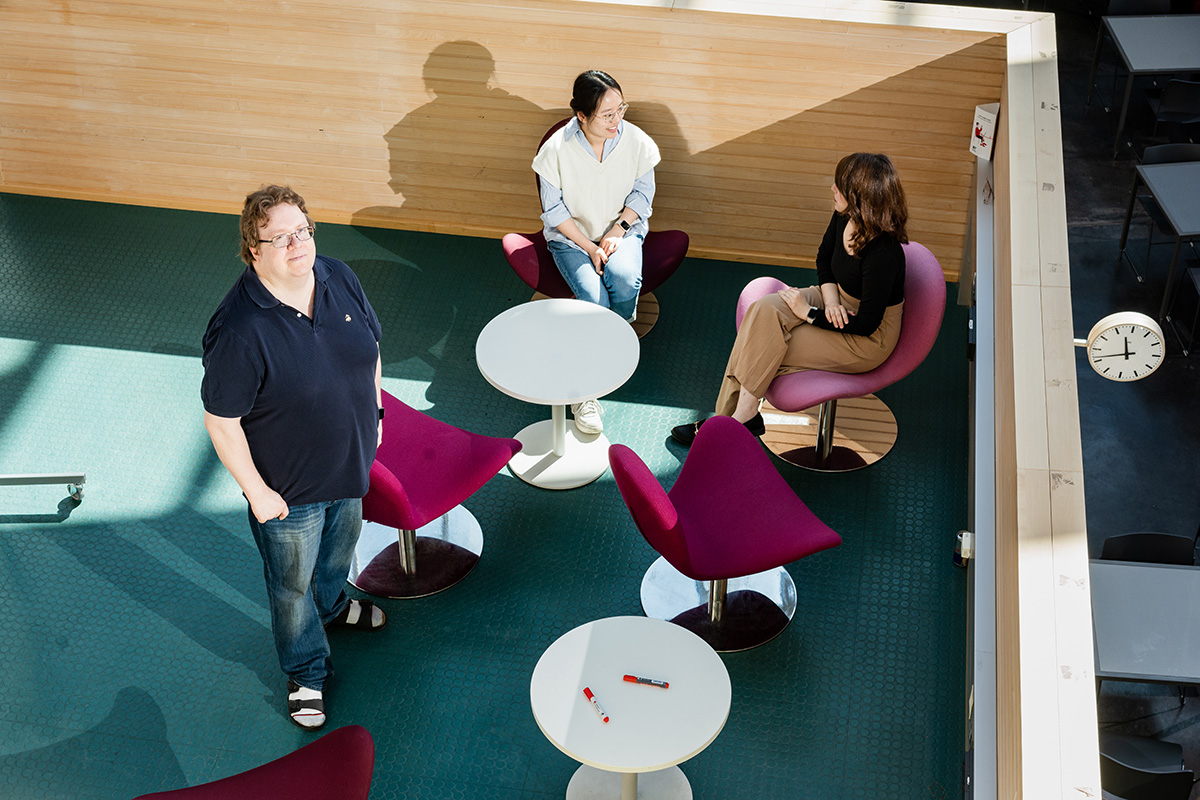 |
| Janne Lindqvist with doctoral candidates Rongjun Ma and Amel Bourdoucen at the Aalto University Computer Science Building in Espoo. Photo: Ville Maali |
Multidisciplinarity also means examining the same topic but with differing viewpoints, methods, and theories from a range of fields.
Although multidisciplinarity has been discussed for some time, it isn’t necessarily practiced by institutions and scientific communities. Therefore, are the top publications of different fields committed to a multidisciplinary approach?
Clear communication enables multidisciplinary work
As a research scientist, Janne Lindqvist is exceptionally articulate. He recounts small anecdotes, offers examples, and steers clear of jargon. It’s no coincidence.
”I put a lot of time and effort into making my research results easy to grasp,” he says.
Clear communication enables multidisciplinary work. It’s also linked to the relationship between society and research.
To put it bluntly: no matter how fine your research, it won’t help society at large if the results or their potential practical application are not understood. A researcher can serve as a type of interpreter between the scientific field and the general public. Similarly, different disciplines cannot collaborate without smooth communication. It’s easy to see that students will benefit from the ”multilingualism” of studying both psychology and technology: they speak the language of humans and machines.
I put a lot of time and effort into making my research results easy to grasp."
Similar examples abound: medical doctors must be able to communicate with patients while increasingly needing to master administrative lingo, organizational psychology, leadership, and the possibilities of AI.
Multidisciplinarity requires investing in communications, which seems to be more of an attitude or relationship with one’s activities rather than a strategic focus area. Am I primarily a geek, boss, biologist, people person – or are we all here together to solve problems and think about intriguing questions, each from our backgrounds, curious about each other’s viewpoints?
Curiosity catches on
A professor’s work involves research, teaching, and societal interaction (although many will complain their time is spent on admin, applying for funding, meetings, development, reforms, reporting…). We’ve mainly discussed research, which, according to Lindqvist, is not separate from societal interaction.
He readily admits that behind his success is a group of people who have supported, mentored, pointed the way, and encouraged him. He strives to do the same for his students. Young researchers are close to his heart.
”Many of my former students have gone on to do their doctorate at one of the world’s top universities or have a successful career in industry. Knowing you’ve made a small contribution to their career and life is a wonderful feeling.”
That contribution may be academic, but in Lindqvist’s case, it’s easy to imagine there’s more. Curiosity catches on, as does an understanding that technology isn’t separate from humans.
”Working with people is what inspires and motivates me,” the Computer Science professor concludes.
Did you enjoy this long form? If your answer is yes, you can find more long forms here.







